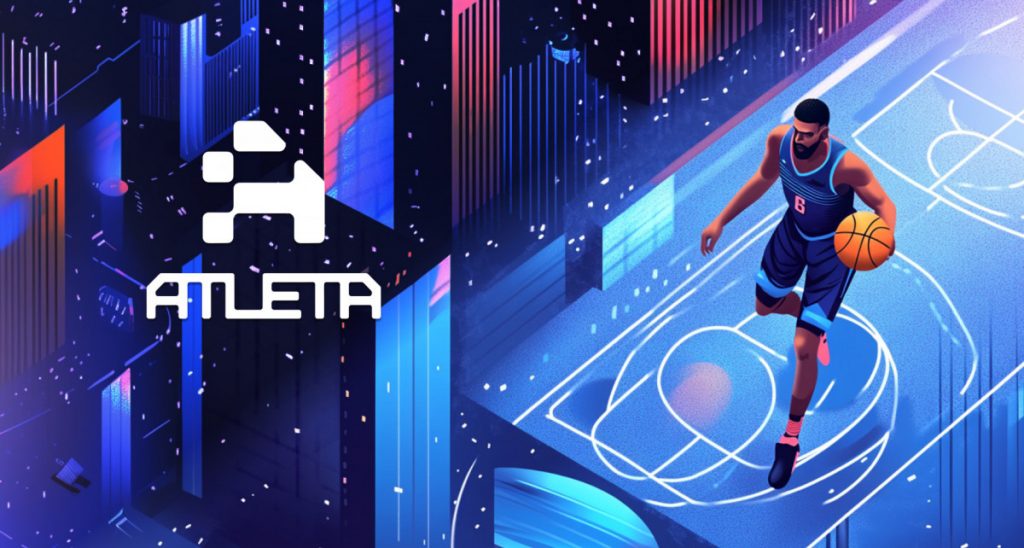
Layer 1 sports-focused blockchain, Atleta released an overview of its infrastructure stack designed to digitize sports, convert analog assets into tokenized forms, and make traditionally private sports markets accessible to the public. The platform serves clubs, leagues, athletes, and game studios with a Layer 1 blockchain and tools tailored for decentralised finance (DeFi), non-fungible tokens (NFTs), and GameFi. Developed using Substrate and Rust, the EVM-compatible network combines security and decentralization with developer familiarity, while supporting permissionless participation and on-chain governance.
The sports industry is increasingly moving toward digital solutions on systems not originally built for it, with contracts and image rights still managed via PDFs and ticketing and merchandise processed through expensive intermediaries. Clubs face challenges in transforming analog assets such as archives, event data, and loyalty programs into programmable products. While fan tokens offered a potential blockchain-based solution five years ago, they have not increased revenue or enhanced fan engagement. The industry now requires an infrastructure-first approach that establishes foundational systems before focusing on rewards. This next phase emphasizes core infrastructure in a market projected to expand from approximately $2 billion today to $10 billion by 2035.
Substantial progress is emerging from sports-native blockchains capable of tokenizing real assets—including ticket sales, sponsorship contracts, and event data—and converting them into programmable components that integrate with DeFi, GameFi, and NFT ecosystems.
Atleta embodies this comprehensive approach, aiming to lay the groundwork for a more efficient and accessible digital sports economy.
Atleta’s mission centers on modernizing the sports industry and reshaping market structures through next-generation digital applications. At the execution level, the Atleta Layer 1 blockchain runs EVM-compatible smart contracts on a Substrate runtime compiled to WASM, facilitating Solidity migration while retaining a Rust/INK option for advanced development. Its interoperability layer enables cross-chain transfer of assets and data through bridges and messaging, while a storage layer supports decentralized media and structured data, anchoring match footage, ticketing records, and event metadata.
Core decentralized applications, including staking, governance, a decentralized exchange, and a bridge, are being deployed gradually to provide foundational functionality. A native Blockchain Sports Marketplace manages primary and secondary sales of sports-linked digital assets. The platform’s tooling and infrastructure include blockchain explorers, faucets, testnets, software development kits, grants, and an ambassador program.
The network operates on a Nominated Proof-of-Stake model that separates block production from finalization, with BABE generating blocks and GRANDPA finalizing them, achieving approximately six-second block times and around 80 transactions per second. Atleta is designed to integrate with major ecosystems from launch, including Ethereum, Polkadot, Arbitrum, and Polygon.
Atleta’s advantage lies in its sports-specific, modular architecture, capable of managing compliant real-world assets, identities, and event data without requiring individual integrations for each club or league. Developers can deploy Solidity applications directly via EVM or utilize the Rust/INK pathway on Substrate for more customized solutions. Its interoperability-first design facilitates asset and data movement across chains, while the native marketplace centralizes primary and secondary trading to prevent fragmentation. The network’s low fees and fast finality enhance user experience and transaction efficiency.
For sports organizations, the platform enables verifiable digital ownership, transferable fan rewards, and auditable media or match data that can be reused across multiple products. For developers, it reduces infrastructure setup time and expands reach through cross-chain connections and a unified marketplace. To support this ecosystem, Atleta operates an ATLA-funded Grants Program providing $2,500–$200,000 in milestone-based funding, along with hands-on guidance and marketing support post-launch. To date, six projects have been selected, with approximately 30 applications under review.
On August 17th, Atleta completed a community-supported token generation event for ATLA, the native token that powers gas fees, governance, and staking on the network, alongside a listing on MEXC. The launch attracted primarily participants from the sports sector rather than typical cryptocurrency speculators. Following the mainnet debut, Atleta reported over one million active users and 24 million transactions.
The Atleta team plans to launch on decentralized exchanges and Tier-2 centralized exchanges later this year, alongside the introduction of liquidity grants and a bug bounty program to strengthen network security. The project will expand its DeFi partnerships, host a community hackathon, and integrate lending protocols to enhance on-chain utility.
In the fourth quarter of 2025, focus will shift to data management and distribution, with the deployment of a data-storage testnet and onboarding of a legacy data provider to convert historical records and media into an on-chain format. The roadmap anticipates Tier-1 exchange listings, a second token airdrop, publications codifying best practices under “SportFi,” a “Data Rush” community event, and the storage layer mainnet launch in the first quarter of 2026. The second quarter of 2026 emphasizes scaling and engagement, including a parallelized virtual machine for mainnet and a network-wide points system to reward participation.
In Q3 2026, Atleta plans to expand its go-to-market strategy with an affiliate program and APIs enabling clubs, leagues, and federations to connect their applications to the chain. Regional expansion across Asia, Latin America, and MENA is scheduled for Q4 2026, supported by the Atleta Cup and local Web3 and sports partnerships. The year 2027 will focus on further brand collaborations and the integration of ATLA into payment systems, with future initiatives including AI-driven applications, decentralized data projects, and a World Drift Championship featuring AI-operated vehicles.
If successfully executed, Atleta could transition elements of the sports market from private ledgers to transparent, programmable infrastructure by supporting compliant real-world assets, richer data products, and cross-chain applications that meet fans where they already engage. Reflecting on five years since the introduction of fan tokens, it is evident that while they added engagement, they did not transform the underlying infrastructure. The next phase emphasizes foundational systems—identity, rights, data, and payments—that sports organizations can rely on and developers can build upon, allowing tokens to function as integral components of a broader ecosystem rather than standalone attractions.
The post Atleta Unveils Sports-Focused Blockchain Stack To Tokenize Assets And Modernize The Industry appeared first on Metaverse Post.
Also read: What Happened in Crypto Today: Market Insights & Trend Updates